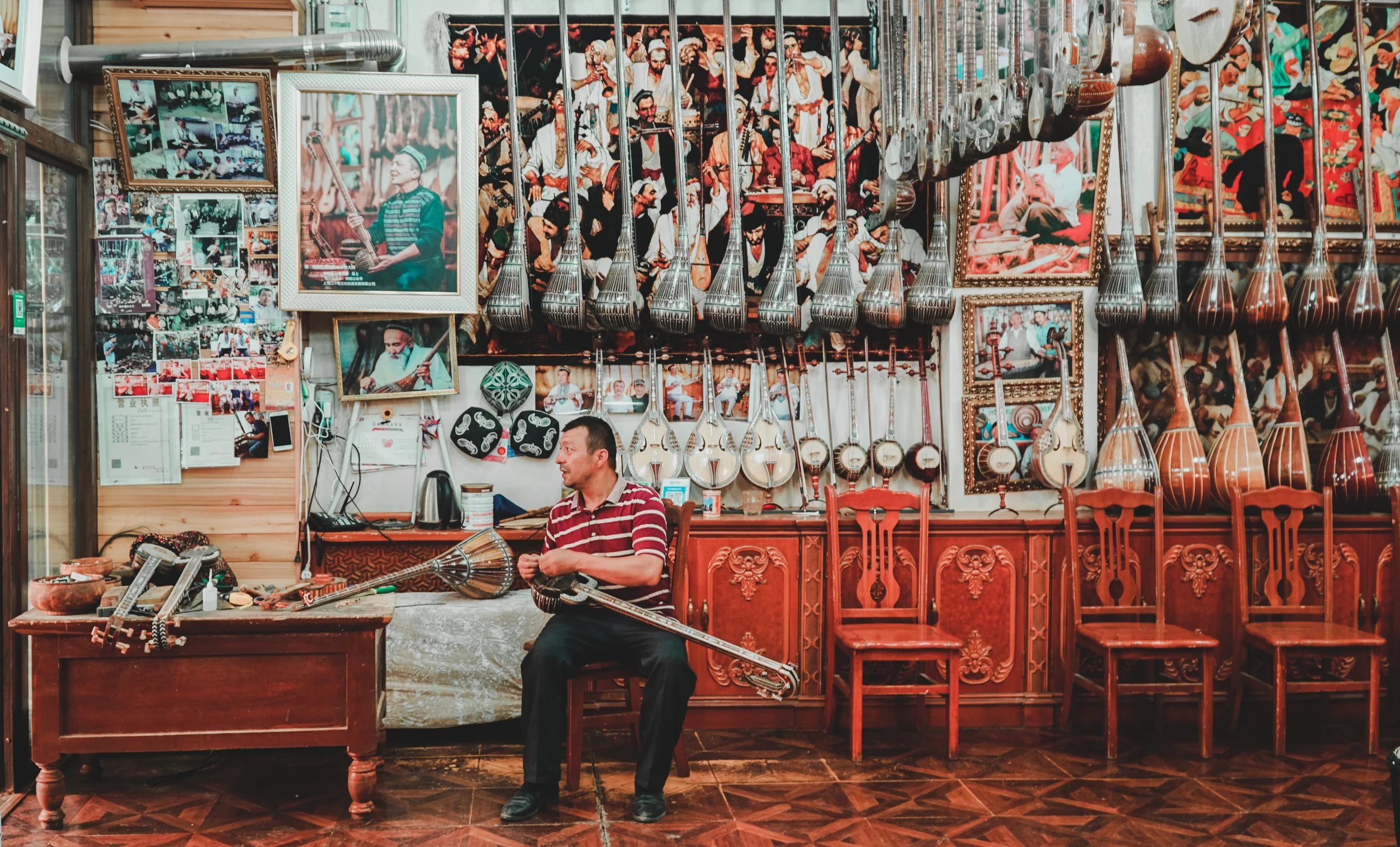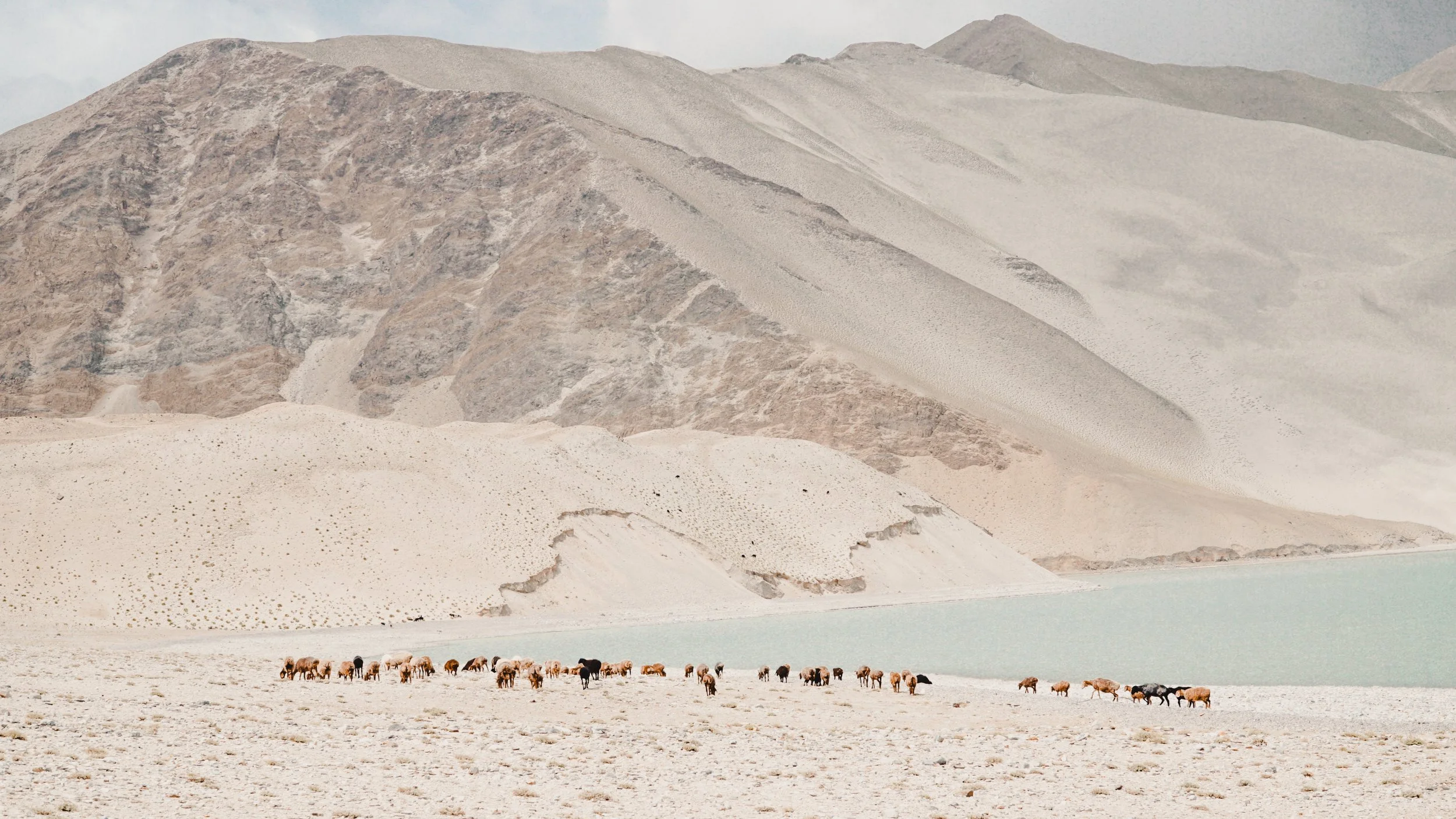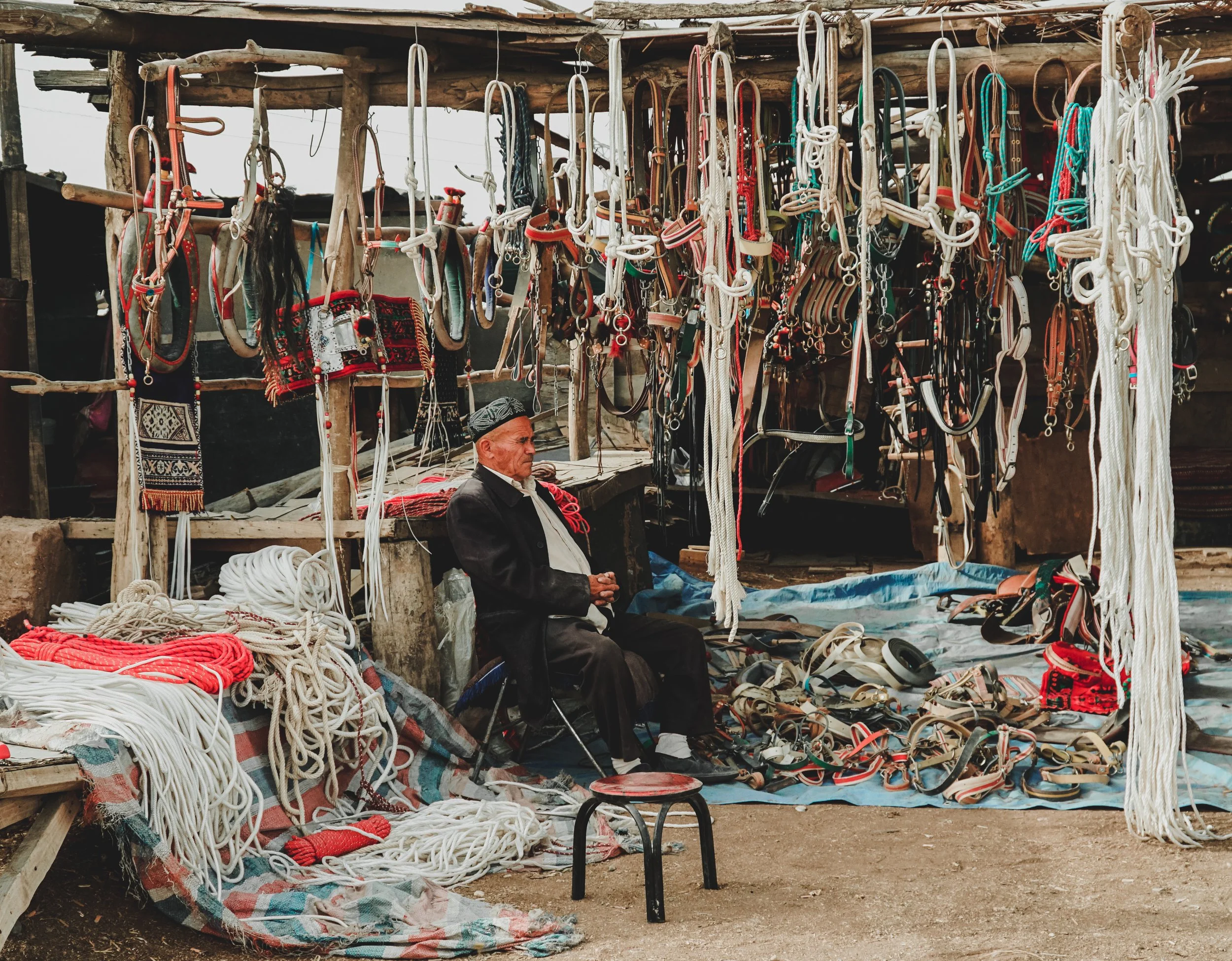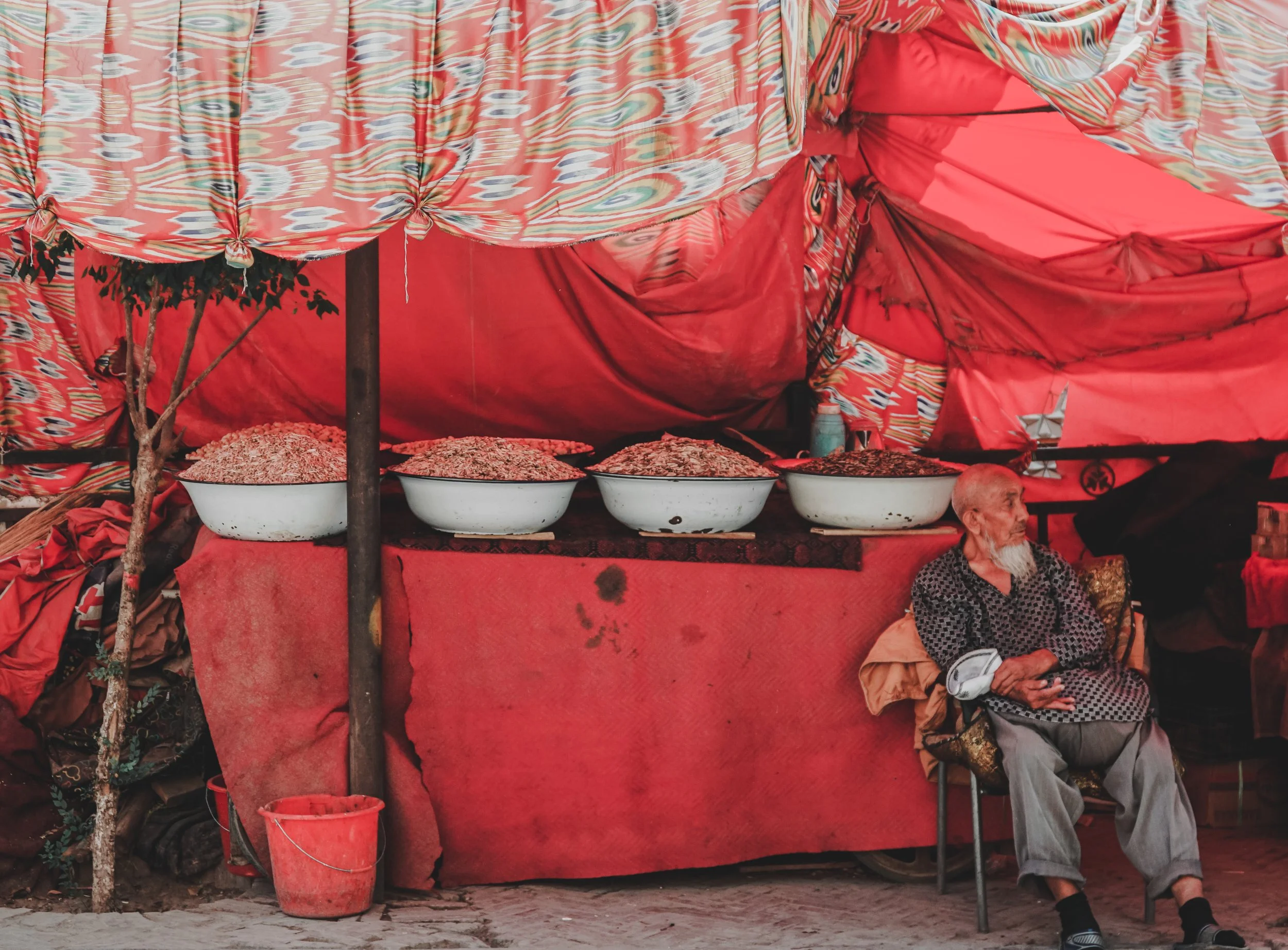
“You will hear it for yourselves, and it will surely fill you with wonder.” — Marco Polo
Kashgar once whispered secrets of ancient empires and civilizations, etched into its walls and courtyards. It stood as a testament to the resilience and diversity of the Uighur people, with its bazaars, mosques, and neighborhoods, reflecting a cultural identity that remained shielded from external influences.
At present, the streets in Kashgar’s old city are bustling with dancers in their bright costumes and traditional instruments, as they entertain streams of camera toting visitors. Few blocks away, the bulldozers clear the debris from a demolished area. Gone are the traditional mud-brick structures and ornate wooden facades. The crowds are lively yet there is a suffocating silence, one which mirrored the unspoken struggles of a culture being subdued and relegated to the status of a mere novelty.
It was a poignant memory to be there on the cusp of its transformation, to witness changes in the subtle nuances of everyday life, to see the hushed conversations that dared not speak of the changes unfolding
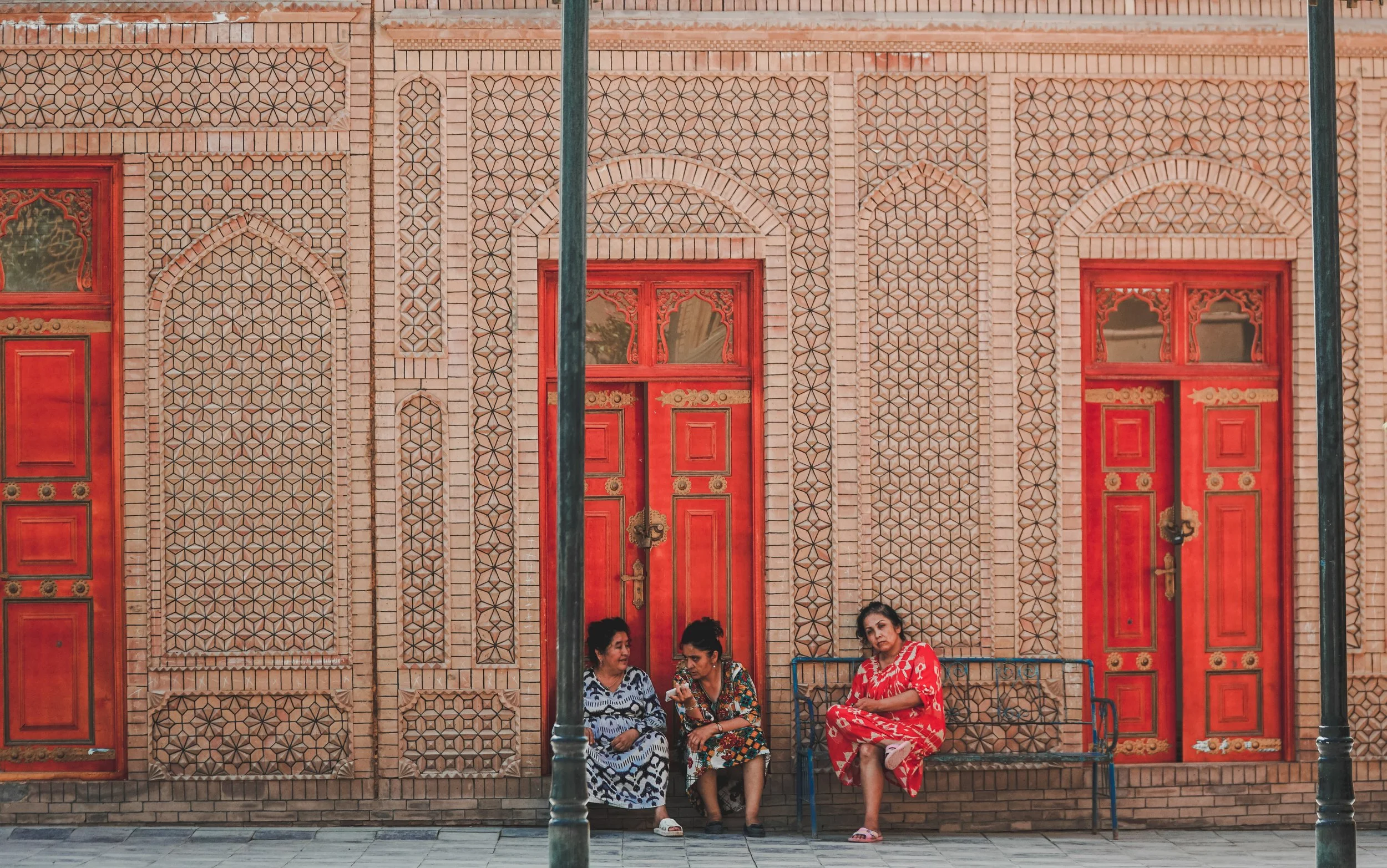
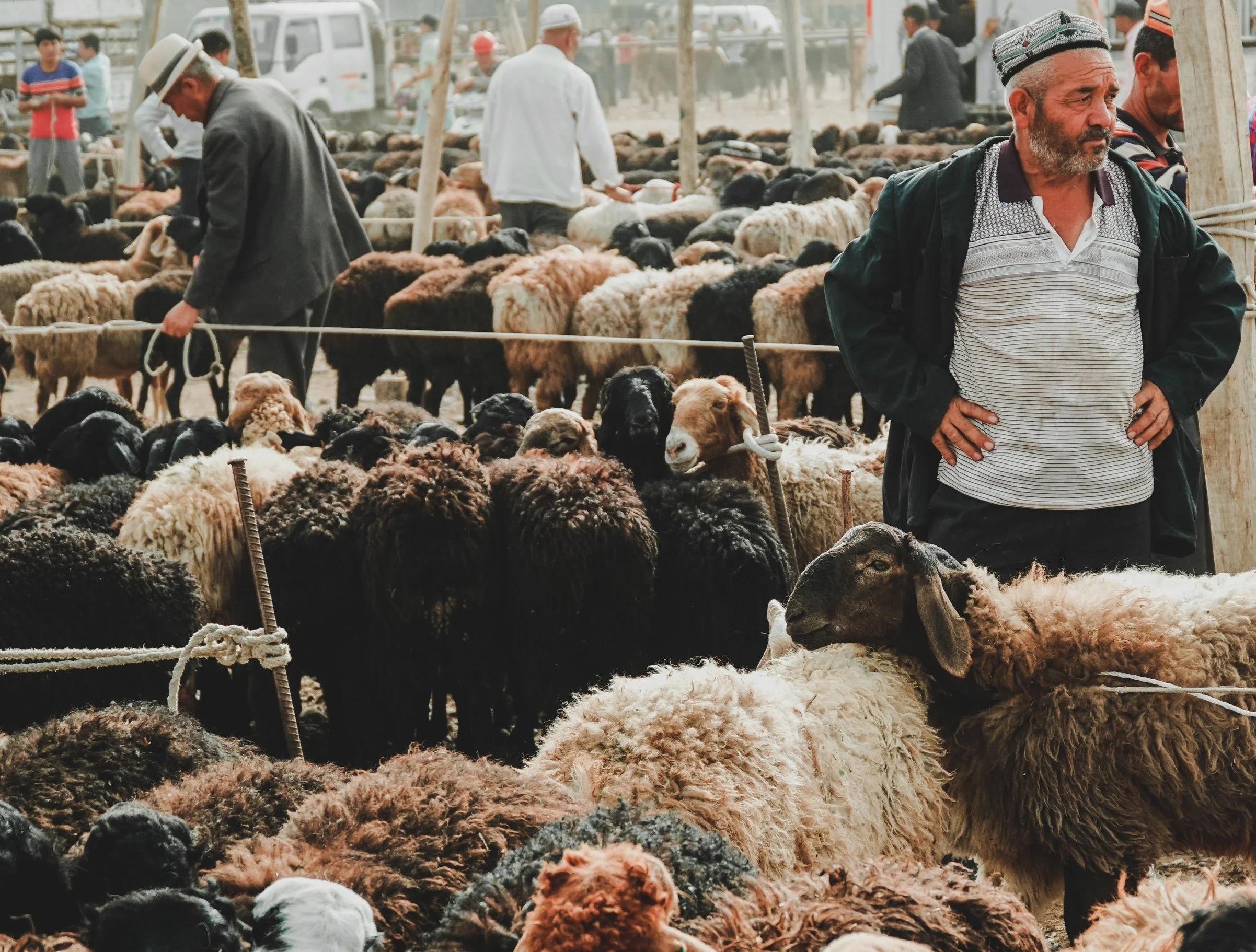
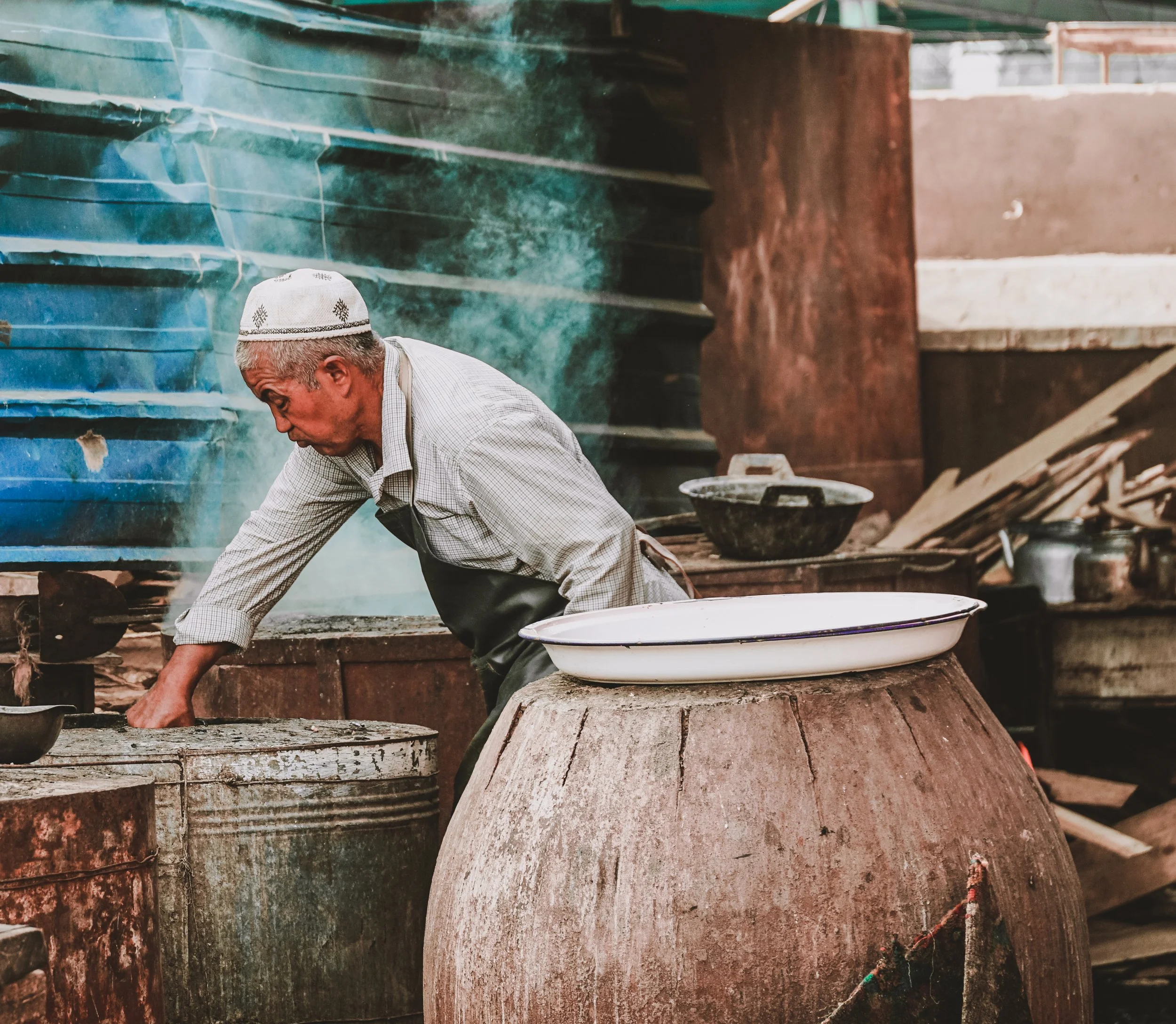
The Kashgar livestock market has been in place for thousands of years now. An important trading post , farmers from nearby and faraway villages trek into this place to sell every kind of livestock you would imagine. Camels, cows, horses and donkeys entered the market throughout the day. It was quite a scene to watch. The market drowns in indiscernable sounds as traders haggle with one another. On the other side, cooks busily prepared laghman and lamb samosas.
Fondness of yaks made us follow a herd heading towards the lake. This was far from the main road and a 20-minute walk on rough terrains. However, the yaks led us to this beautiful, unsobtructed view of the lake. There was a moment of solitude, listening to sound of the wind and the steps of the yaks. An unbelievable feeling of nostalgia, a reminder of history. Here was the path where Marco Polo and other fabled travellers journeyed in their camels and caravans.
